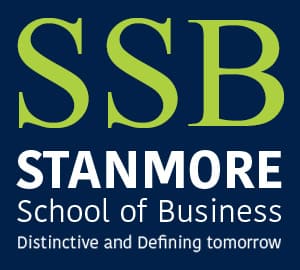From Classroom to Career: Professional Certificate in Structural Bioinformatics Alumni Stories
Published on June 24, 2025
About this Podcast
HOST: Welcome to the show! Today, we have an expert with us who's here to discuss a fascinating Professional Certificate course in Structural Bioinformatics. Could you tell us a bit about the course and its unique features? GUEST: Sure! The Professional Certificate in Structural Bioinformatics is designed to equip learners with the necessary skills for a career in this high-demand field. It covers topics like bioinformatics and computational biology, providing a comprehensive understanding of structural bioinformatics principles and applications. HOST: That sounds amazing. Now, our audience would love to hear about some personal experiences and insights related to the course topic. Could you share a success story or two from the program's alumni? GUEST: Absolutely! One of our alumni, Sarah, was able to apply her newfound knowledge to her work at a biotech company, significantly improving their drug discovery process. Another alumnus, John, used the skills he learned to secure a position at a renowned research institution, where he's now making groundbreaking discoveries in protein structure prediction. HOST: Wow, those are truly inspiring stories! Now, let's talk about current industry trends. How does the course content stay up-to-date and relevant in the rapidly evolving field of structural bioinformatics? GUEST: We consistently update the course material to reflect the latest industry trends and advancements. Our instructors are actively working in the field, ensuring that the content remains current and relevant to real-world applications. HOST: That's fantastic. Now, every field has its challenges. What do you think are some of the biggest hurdles faced in structural bioinformatics, and how does the course help learners overcome them? GUEST: One challenge is the rapid growth of data, which can be overwhelming for newcomers. Our course addresses this by teaching data management and analysis techniques, enabling learners to handle large datasets with confidence. HOST: That's reassuring. Lastly, could you share your thoughts on the future of structural bioinformatics and the opportunities learners can expect upon completing the course? GUEST: The future of structural bioinformatics is bright, with increasing demand for professionals who can apply computational methods to biological problems. By completing this course, learners will be well-prepared to drive innovation and make meaningful contributions to the field. HOST: Thank you so much for sharing your insights and experiences with us today. We hope our audience has gained valuable information about the Professional Certificate in Structural Bioinformatics and is inspired to explore this exciting field!
